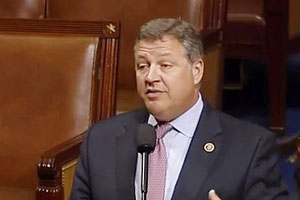Senior Reporter
House Passes Two-Month Highway Trust Fund Patch; Senate’s Turn to Act

House Republicans on May 19 garnered plenty of support for a two-month extension of highway funding authority, even as a pesky cadre of Democrats criticized their efforts.
The short-term measure, which passed 387-35, advances to the Senate, where Republican leaders have indicated they would support it. Congress is moving quickly this week to ensure the authorization of highway programs, which expires at the end of the month. Lawmakers are out of town next week.
Transportation and Infrastructure Chairman Bill Shuster (R-Pa.), the bill’s co-sponsor, said transportation policy leaders and tax-policy writers will look to come up with a sustainable source of funding for the Highway Trust Fund during the next two months. Shuster cautioned, however, the chamber should expect to consider another funding extension this summer that lasts through the end of the year.
The top Democrat on Shuster’s panel, Rep. Peter DeFazio of Oregon, was not pleased with the GOP’s approach, insisting that two months offers a big enough window to achieve a significant transportation bill.
“It’s time to suck it up around here, act like men and women who were sent here to make tough decisions, to regain our legacy, to begin to bring America back toward a world-class infrastructure,” DeFazio said on the floor.
Senate floor managers have yet to say when the chamber will take up the House-passed patch. Top Republicans, such as Sens. Orrin Hatch of Utah and Mike Enzi of Wyoming, chairmen of the Finance and Budget panels, respectively, have warned colleagues about the looming funding shortfall.
The chairman of the Senate’s transportation policy panel, Oklahoma Republican James Inhofe, said he will schedule a markup on a six-year highway bill in June.
State officials and industry leaders have urged lawmakers to approve a long-term highway plan and avoid resorting to short-term patches. The trucking industry and other stakeholders have called on Congress to raise taxes on fuels, a move opposed by GOP leaders.

